Completed evaluations

Terminal evaluation of the first cluster of FAO’s Capacity-building Initiative for Transparency projects
19/05/2023
The evaluation recommends to consider mechanisms and strategies to institutionalize individual learnings and internalize knowledge and practices within and between the ETF-responsible institutions, and to devise knowledge management plans that go beyond communication and information sharing and encompass a detailed analysis of good practices, lessons and mechanisms for institutionalization of knowledge.
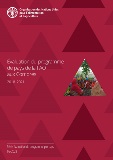
Evaluation of the FAO country programme in Comoros 2018–2021
28/04/2023
FAO has implemented various projects that have strengthened the livelihoods of vulnerable populations. However, FAO interventions seem to have lost visibility in recent years due to a very small country team. In addition to strengthening its presence in the Comoros, FAO should promote greater national ownership of the CPF, review its national capacity building strategy, strengthen its partnerships with other key actors and develop projects for the integration of women and young people.
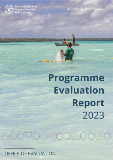
Programme Evaluation Report 2023
26/04/2023
The Programme Evaluation Report focuses on evaluations conducted by the FAO Office of Evaluation (OED) in the 2021–2022 biennium. These include project, programme, country, and thematic evaluations of development and emergency and resilience interventions.
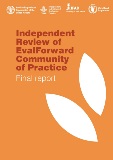
Independent review of EvalForward Community of Practice
26/04/2023
The purpose of the Independent Review is to draw lessons from the four years of operation of EvalForward (2018–2022) to evaluate its appropriateness and usefulness for its members and to identify areas where adaption is needed to improve results.
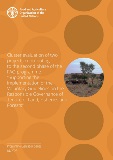
Cluster evaluation of two projects contributing to the second phase of the FAO programme ″Supporting the Implementation of the Voluntary Guidelines on the Responsible Governance of Tenure of Land, Fisheries and Forests“
25/04/2023
The evaluation emphasized the need to invest in political economy analysis and to strengthen integration with other actors. Increased attention could be paid to identify ways to increase linkages between capacity development and multisectoral dialogue on the one hand, and decision-making processes on the other.
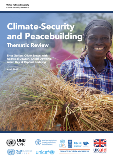
Thematic Review on Climate Security and Peacebuilding
19/04/2023
The 2023 Thematic Review on Climate Security and Peacebuilding distills trends and lessons from climate-security and environmental peacebuilding programming supported by the Peacebuilding Fund, and suggests guidance for future investments in climate-security efforts in fragile and conflict affected contexts.
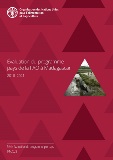
Evaluation of FAO's country programme in Madagascar (2018–2021)
11/04/2023
The evaluation identified different priorities for the next Country Programming Framework: support for dialogue within the rural development and environment strategic consultation platforms, promotion of holistic approaches integrating agriculture and sustainable natural resources and a communication strategy involving other partners.
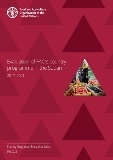
Evaluation of FAO's country programme in the Sudan (2017–2021)
24/03/2023
As a result of the current crisis in the Sudan, growth has slowed down and food insecurity has become more severe. FAO's programme has provided critical technical support at the sector level, particularly in the area of food security and livelihoods, as well as bridging the gap between its emergency and development interventions. However, it did not have the opportunity to provide policy advice and to engage strategically.
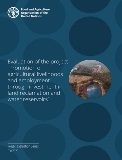
Evaluation of the project ''Promotion of agricultural livelihoods and employment through investment in land reclamation and water reservoirs''
18/03/2023
The project aimed at strengthening the capacity of the Green Plan, improving the know-how of small and medium farmers and their livelihoods through land reclamation and water conservation in addition to creating job opportunities in the agriculture sector. The project was relevant to FAO’s global mandate and its work in Lebanon as well as aligning itself with the government’s strategy for agriculture.
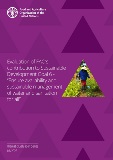
Evaluation of FAO’s contribution to Sustainable Development Goal 6 – “Ensure availability and sustainable management of water and sanitation for all”
08/03/2023
This evaluation assessed the extent to which FAO’s work has been relevant and effective in supporting its Members to achieve Sustainable Development Goal 6 (SDG 6). FAO has a comparative advantage in several key SDG 6 target areas and addressed needs and demands from Members in all SDG 6 target areas. However, overall FAO’s strategic approach to water-related activities remains.
